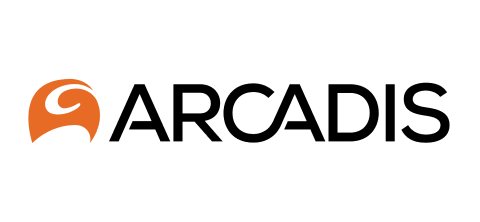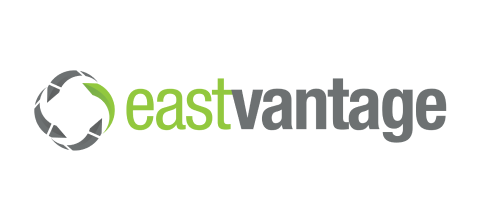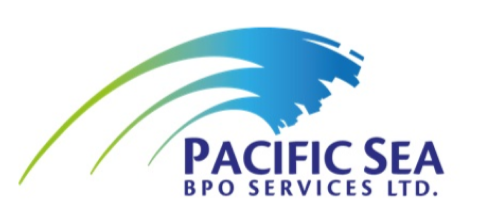Choosing the right English course can be a daunting task, especially with the growing options available today. With the proliferation of educational technologies and globalization, learners now have more choices than ever.
The two primary modes of learning English are in-person and online courses. Each method has its unique advantages and potential drawbacks, making it essential to consider your personal learning style, goals, and circumstances.
For some, the traditional classroom setting offers structure and face-to-face interaction that are invaluable for learning, while others may prefer the flexibility and convenience of online courses. Understanding the benefits and challenges of each approach can help you make an informed decision that aligns with your learning preferences and lifestyle.

In-Person English Courses
In-person English courses have been the traditional method of learning for centuries. These courses typically take place in a classroom setting where students can engage directly with instructors and peers, fostering an environment conducive to active learning and immediate feedback.
Advantages of In-Person English Courses
In-person English courses have been the traditional method of learning for centuries and offer several distinct advantages.
1. Face-to-Face Interaction
One of the most significant benefits of in-person courses is the face-to-face interaction with instructors and fellow students. This direct interaction allows for real-time communication, which can enhance your speaking and listening skills effectively.
According to a study, face-to-face interactions facilitate immediate feedback and clarification, which can be crucial for language learning. These immediate corrections and feedback help learners understand their mistakes and improve quickly.
Moreover, these interactions often lead to more personalized learning experiences, as instructors can adjust their teaching methods to meet the individual needs of students. The social aspect of face-to-face classes also helps build confidence in using the language in real-world situations, fostering a supportive learning community.
2. Structured Learning Environment
In-person courses often provide a structured learning environment with a set schedule. This structure can help students stay disciplined and focused, which is especially beneficial for those who may struggle with self-motivation.
Research indicates that a structured environment can significantly improve learning outcomes for students who thrive under direct supervision. The regular schedule and classroom setting can create a routine that encourages consistent study habits.
Additionally, the physical presence of instructors and peers can provide accountability, pushing students to stay on track with their learning objectives. For many learners, this structure and accountability are key to maintaining progress and achieving their language goals.
3. Access to Resources
Students in in-person courses typically have access to various resources such as libraries, language labs, and other facilities that support learning. These resources can provide additional practice and enhance the overall learning experience.
Access to physical resources like books, study materials, and technological tools can greatly benefit language acquisition. For instance, language labs offer software and tools specifically designed for practicing pronunciation and listening skills.
Having access to a range of learning materials and environments can cater to different learning styles and needs, making the educational experience more comprehensive and effective.
Furthermore, being in a classroom environment often allows for collaborative learning opportunities, where students can engage in group activities and discussions, further enriching their understanding of the language.
Disadvantages of In-Person English Courses
While in-person English courses have many benefits, there are also some notable drawbacks.
Less Flexibility
In-person courses usually have fixed schedules and locations, which can be less convenient for students with busy or unpredictable lifestyles. This rigidity means that students must arrange their work, family, and other commitments around their class times, which can be challenging.
For example, if a student has a demanding job with varying hours or is a parent with young children, attending a regularly scheduled class can be difficult. The lack of flexibility can be a significant barrier, potentially preventing students from enrolling in or consistently attending classes.
According to a study, students with higher time constraints often prefer flexible learning options to balance their multiple responsibilities effectively.
Higher Costs
In-person courses often come with higher costs due to tuition fees, commuting expenses, and sometimes accommodation. These additional expenses can make in-person classes financially burdensome, especially for those already managing tight budgets.
For instance, students may need to pay for transportation to and from the institution, which can add up over time, particularly in urban areas with high commuting costs. Furthermore, some students may need to relocate closer to the school, incurring moving and living expenses.
The cost of attending in-person classes can be significantly higher than online alternatives, making it a less attractive option for cost-conscious learners.
Online English Courses

Online English courses have gained popularity due to their flexibility and convenience, allowing students to learn at their own pace and schedule. These courses are accessible from anywhere, making them ideal for learners with busy lifestyles or those living in remote areas. The curriculum is often designed to be self-paced, enabling learners to progress according to their own schedules and needs.
Advantages of Online English Courses
Online English courses have gained immense popularity due to their numerous advantages.
Flexibility and Convenience
Online courses offer unparalleled flexibility, allowing students to learn at their own pace and schedule. This flexibility is particularly beneficial for working professionals or those with family commitments. Students can access course materials and complete assignments at times that suit them, making it easier to balance their studies with other responsibilities.
A study by the Babson Survey Research Group found that over 70% of students appreciate the flexibility that online learning provides, highlighting its importance in modern education. This flexibility also allows students to continue their education without sacrificing their work or personal life, making learning more accessible.
Cost-Effectiveness
Online courses can be more cost-effective than in-person classes. They eliminate commuting costs and often have lower tuition fees. For instance, students save on transportation, parking, and potentially even housing if they would otherwise need to relocate for their studies.
Additionally, many online courses offer free or lower-cost materials, further reducing the financial burden on students. This affordability makes online learning a viable option for a broader range of students, including those who might not be able to afford traditional in-person classes.
Access to Diverse Learning Materials
Online courses often provide a wide range of multimedia resources, including videos, podcasts, and interactive exercises. These diverse materials cater to different learning styles, whether visual, auditory, or kinesthetic, enhancing the learning experience.
For example, videos and interactive exercises can make complex concepts easier to understand and more engaging than traditional textbooks.
Research by the International Review of Research in Open and Distributed Learning highlights the effectiveness of multimedia in improving language acquisition, noting that varied materials can help maintain student interest and motivation.
Furthermore, online platforms often offer forums and discussion groups, allowing students to interact with peers and instructors, thus enriching the educational experience.
Disadvantages of Online English Courses
While online English courses offer numerous benefits, they also come with several disadvantages that potential learners should consider.
Limited Interaction
One of the main drawbacks of online courses is the limited face-to-face interaction. Despite many platforms offering discussion forums and video conferencing, the absence of in-person communication can make it challenging for some students to practice speaking and listening skills effectively.
This limitation can hinder the development of nuanced communication skills, such as interpreting body language and tone of voice, which are critical in mastering a new language.
Self-Discipline Required
Online learning requires a high degree of self-discipline and motivation. Without a structured environment, some students may struggle to stay focused and committed to their studies.
The lack of physical presence and immediate accountability can lead to procrastination and decreased engagement. Students who are not self-motivated may find it difficult to manage their time effectively and complete assignments on schedule.
This challenge underscores the importance of strong personal discipline and self-management skills in an online learning context.
Technical Issues
Online courses rely heavily on technology, which can be a double-edged sword. Technical issues such as poor internet connectivity or platform malfunctions can disrupt learning and cause frustration.
These issues can range from minor inconveniences, such as slow loading times, to major disruptions, like system outages during exams. Additionally, not all students have access to high-quality devices or reliable internet connections, which can create an unequal learning experience.
Which is Right for You?
Deciding between in-person and online English courses depends on several personal factors. Here are some considerations to help you choose the best option for your needs.
Consider Your Learning Style
If you thrive in a structured environment with direct supervision and immediate feedback, an in-person course may be the best option for you. In-person classes provide a more controlled environment, with set schedules and physical presence, which can be beneficial for those who need structure to stay motivated.
Conversely, if you prefer flexibility and are comfortable managing your schedule, an online course could be a better fit. Online courses allow you to learn at your own pace and can be more accommodating to your personal and professional commitments.
Assess Your Goals and Commitments
Consider your personal and professional commitments. If you have a busy schedule or need to balance multiple responsibilities, the flexibility of online courses can be beneficial. Online learning can fit around your existing commitments, allowing you to study when it suits you best.
Conversely, if you can commit to a fixed schedule and location, the immersive experience of in-person courses may be more advantageous. In-person classes can provide a more intensive learning experience, with the opportunity for real-time interaction and immediate feedback.
Evaluate Your Budget
Cost is another critical factor. If budget constraints are a concern, online courses can provide a more affordable alternative without compromising the quality of education. Online courses typically have lower tuition fees and eliminate additional costs such as commuting and accommodation.
However, it’s essential to consider the total cost, including any necessary technology or software for online learning. On the other hand, in-person courses, while often more expensive, may offer additional resources and support that can enhance the learning experience.
Find Your Perfect English Learning Method
Choosing the right English course depends on your individual needs and circumstances.
In-person courses offer the advantages of face-to-face interaction, a structured learning environment, and access to physical resources, making them ideal for those who thrive in a traditional classroom setting.
Online courses, on the other hand, provide flexibility, cost-effectiveness, and access to diverse learning materials, making them suitable for learners who need convenience and adaptability.
At the American English Skills Development Center Inc., we offer both in-person and online courses tailored to meet your needs. Our expert instructors provide personalized guidance to help you achieve your language learning goals. Contact us to discover how we can help you learn English in the learning method suited for you.





















